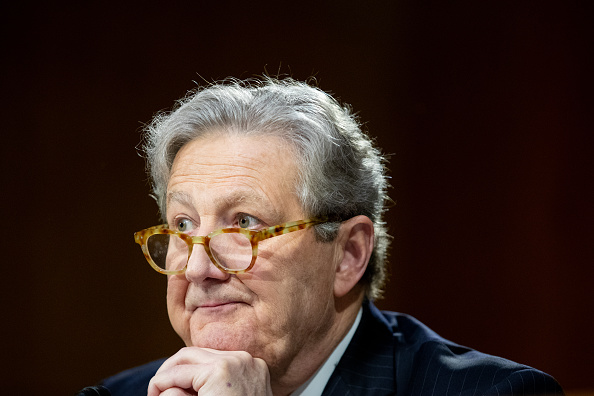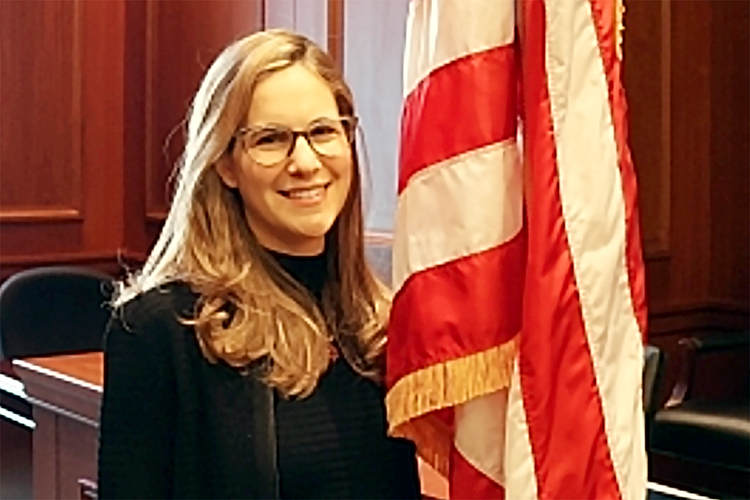'Kennedy quiz' stumps some federal judicial nominees; subjects include collateral estoppel and Article V

Republican U.S. Sen. John Kennedy of Louisiana, a member of the Senate Judiciary Committee, during a hearing in Washington, D.C., on May 4, 2022. (Photo by Amanda Andrade-Rhoades for the Washington Post via Getty Images)
Federal judicial nominees can expect a grilling on the law from Republican U.S. Sen. John Kennedy of Louisiana, a member of the Senate Judiciary Committee.
Kennedy, a lawyer who was an adjunct law professor at Louisiana State University, asks nominees about legal concepts, the U.S. Constitution, recent U.S. Supreme Court cases and other legal information.
Bloomberg Law has the story.
Nick Xenakis, former general counsel for the Senate Judiciary Committee, told Bloomberg Law that every nominee he spoke with before their committee hearings was trying to get ready for the “Kennedy quiz.”
Kennedy asked one nominee of President Joe Biden who later won confirmation, Sara E. Hill, to define collateral estoppel, to contrast a stay order with an injunction, to explain multidistrict litigation and to answer questions about constitutional amendments, ABC 15 News reported in November.
But some nominees asked to withdraw their nominations following Kennedy’s questioning. Charnelle Bjelkengren, another nominee of Biden, was one of them. According to Bloomberg Law, she “flubbed a quiz about Articles II and V of the U.S. Constitution.”
Another was former Federal Election Commission chair Matthew Petersen, a nominee of former President Donald Trump. According to Bloomberg Law, he “wasn’t able to answer any Kennedy questions about trial procedure and the law. Petersen had exclusively practiced administrative law and never tried a case.”
Kennedy told Bloomberg Law that he taught law students for 15 years, “and these are the kinds of questions that I would expect my students to know the answer to.”
But critics say Kennedy’s quizzes don’t reflect the realities of judging.
Kennedy “doesn’t seem to recognize that judges have access to libraries,” said Jake Faleschini, justice program director at the Alliance for Justice, in an interview with Bloomberg Law. “It is far more important that judicial nominees have the humility and research skills to look up the issues in each case than to have memorized them before a hearing.”
Write a letter to the editor, share a story tip or update, or report an error.



